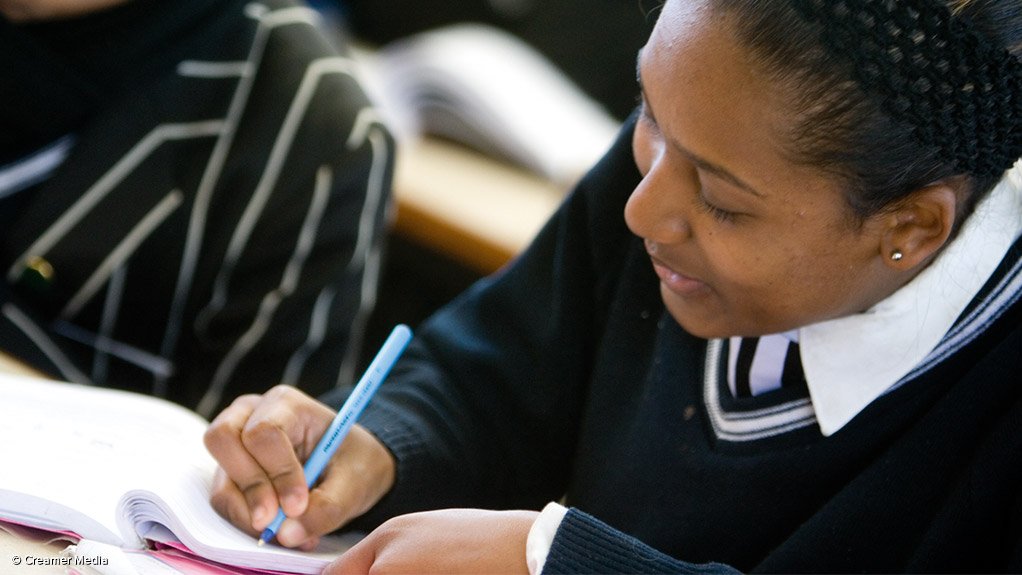While the increase in the overall 2013 matric pass rate, as well as the pass rates in maths and science, were encouraging, system inequalities were still preventing some learners from having access to quality maths and science knowledge, University of the Witwatersrand (Wits) chair of science education Professor Marissa Rollnick said on Tuesday.
During the 2013 examinations, the overall matric pass rate improved to 78.2%, with 439 779 learners out of 562 112 passing, while the physical science pass rate improved to 67.4%.
On a similar note, 142 666 learners passed maths in 2013, taking the pass rate for this subject to 59.1%, compared with 54% in 2012.
“While this is encouraging, there are still certain schools where it is almost impossible to take maths or science and, while the department [of Basic Education] has been working hard to improve underperforming schools, some still do not have the ability to offer these subjects.
“Therefore, there is still a possibility that someone could go to a school and not have the opportunity to pursue science, because of the context of the school,” she told Engineering News Online.
She stated that the fundamentals in the science education system were still problematic in that there were still teachers that struggled with content knowledge.
“It is good news that the system is advancing; [however], our research shows that there are still challenges, not just with content knowledge but also with how to transform that knowledge into a teaching situation, which I think is almost a bigger problem than just the straight knowledge of the content.”
Further, Rollnick said it was also important to note that the only true, meaningful passes in science were those above 50%, adding that an even higher mark was needed to study at a university to pursue a career in this field.
“Also, with science, it is important to remember that it is only grade 12 material that is being tested [in the matric examinations], but if a student goes to university they would need to do things that they did in grade 10 and grade 11, which is not tested on a national level,” she pointed out.
President Jacob Zuma on Monday congratulated the matriculants of 2013 stating that South Africa was on track to achieve its target of 175 000 bachelor’s passes by 2014. In 2013, 171 755 learners, or 30.6%, qualified for bachelor’s studies, up from 26.6% in 2012. 78 407 of these passes were from 1832 schools in the lower three quintiles.
The Portfolio Committee on Basic Education also welcomed the results, with chairperson Hope Malgas stating that the committee was pleased with the improvements in terms of key quality indicators.
“Specifically, we welcome the increase in the number of bachelor’s passes from 26.6% in 2012 to the current 30.6%. We also note the increases in the pass rates in the gateway subjects of mathematics and physical science. These improvements will enable our learners to access critical programmes in the higher education and training sector,” she added.
Rollnick agreed that the number of bachelor’s passes, which in effect meant that the learners were awarded more than 50% in four of their subjects, and more than 40% in another two subjects, was encouraging, adding that, “on paper, enough matriculants were being produced” to attend universities.
However, she explained that, while students were admitted to Wits on the basis of a points system, taking the percentages into account, benchmark tests were still done to place the students in an appropriate course, as well as to determine what kind of support the student might require.
BUSINESS RESPONSE
Meanwhile, South African Chamber of Commerce and Industry (Sacci) CEO Neren Rau said the organisation remained concerned about the quality of the matric certificate owing to the relatively low pass requirements.
For a learner to pass matric, he or she had to achieve a minimum of 40% in four out of seven subjects, and above 30% in the remaining subjects.
“The matric certificate should be a fundamental signal to the labour market that a school leaver can perform in at least a low-skilled position. Sadly, this is no longer the case given a growing body of evidence of ill-equipped school leavers, as reported by the business community,” Rau said.
He added that periodical international comparisons had also shown that the standard of public education in South Africa was extremely poor; therefore, merely raising the pass requirements would not be enough to effectively deal with the problem.
More had to be done to ensure that qualified teachers were supported and that the syllabus content was of a high standard, he said.
“Sacci calls on the Department of Basic Education to raise the pass requirements for matric, but also to introduce national exams at grade seven and grade ten whose results will also be made public,” he said.
Further, Solidarity Research Institute (SRI) senior economic researcher Paul Joubert added that, while the improvement in the pass rate of matriculants sounds promising, it was actually the wrong aspect to emphasise.
“The number of learners progressing from grade one to matric remains very low, with only 34% of the almost 1.2-million grade ones of 2002 having passed matric in 2013.”
According to Joubert, the biggest problems in the school system occurred before grade 12, in particular, learners’ unsatisfactory language skills, including comprehension, and numeracy skills.
“The Department of Basic Education annually requires learners in the lower school grades to take tests to determine their literacy and numeracy. In 2013, only 2% of the grade nines achieved more than 50% in numeracy skills and only 17% achieved more than 50% in an additional language subject. These results show why so few pupils eventually pass matric – the big problem is not in the matric year, but in the school years prior to matriculation,” he stated.
EMAIL THIS ARTICLE SAVE THIS ARTICLE
To subscribe email subscriptions@creamermedia.co.za or click here
To advertise email advertising@creamermedia.co.za or click here











